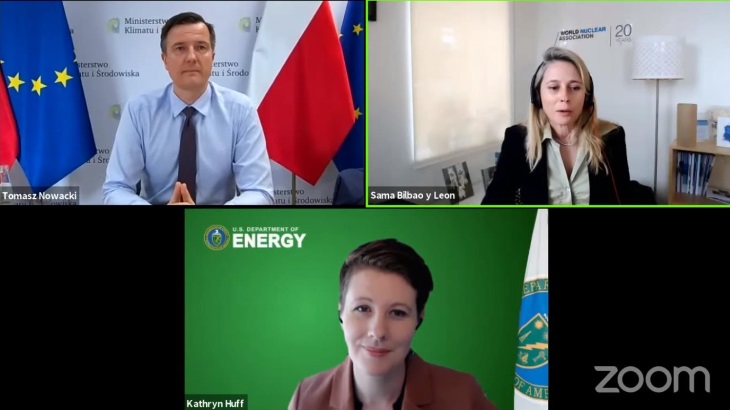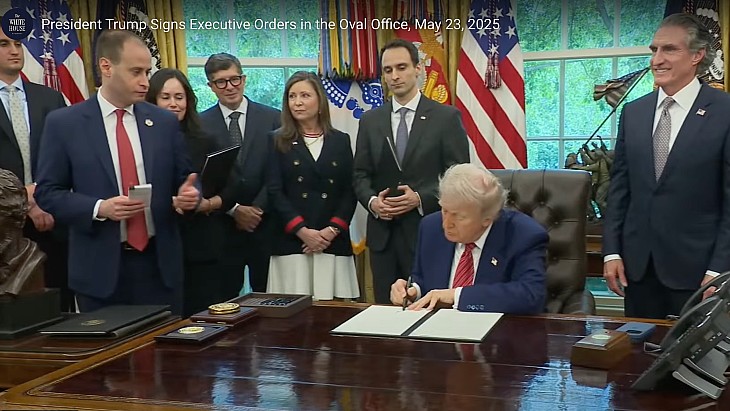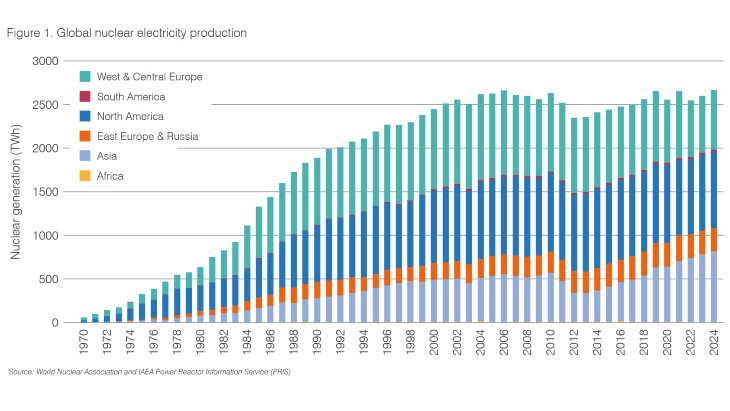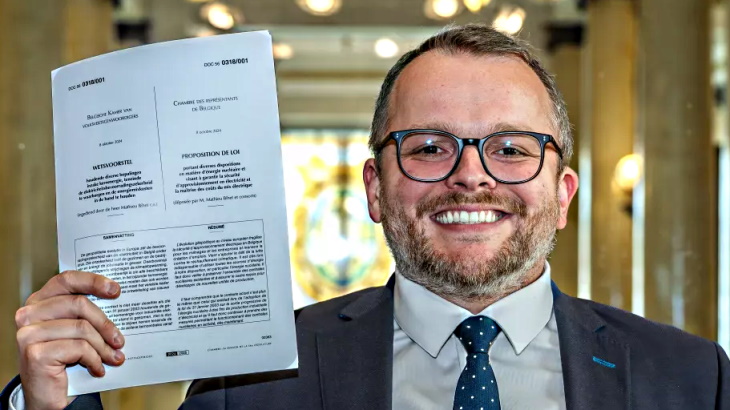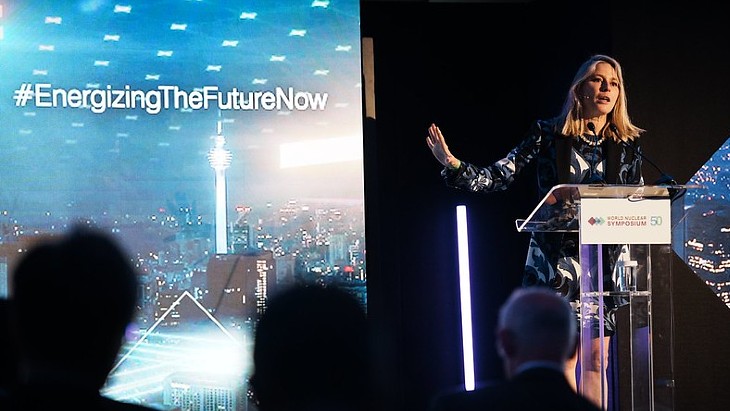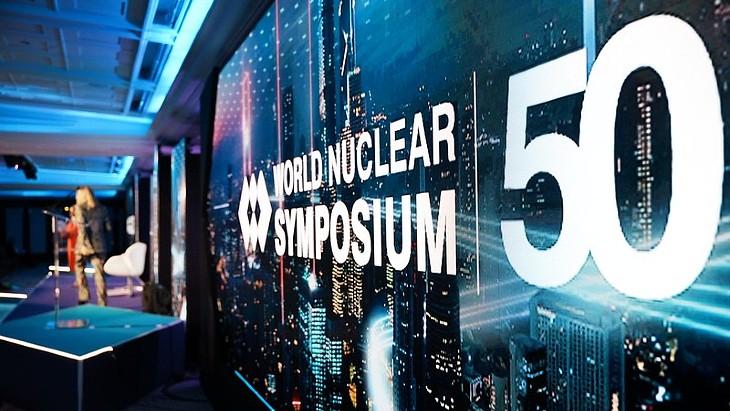Bilbao y León moderated a discussion titled 'Country perspectives on nuclear’s current and future contribution to a clean energy mix and socio-economic growth'. The topic was discussed by Kathryn Huff, acting assistant secretary and principal deputy assistant secretary for the Office of Nuclear Energy at the US Department of Energy, and Tomasz Nowacki, director of the Nuclear Energy Department at the Polish Ministry of Climate and Environment.
First-mover
Bilbao y León spoke of the need for "continuity of support" for nuclear technologies, and asked how governments can help.
Huff said it is important for the US government "to present as a first-mover" and "to provide confidence" for advanced technology developers in licensing structures. "It will also be essential to show and demonstrate their capable integration with renewables. As we look forward, our electric grid will be much more carbon zero."
The USA is the world's largest producer of nuclear power, accounting for more than 30% of worldwide nuclear generation of electricity and about 19% of that of the USA. Following a 30-year period in which few new reactors were built, two new units - Vogtle units 3 and 4 - are expected to enter service in November 2021 and November 2022. The total number of nuclear plants in the USA has fallen over the past two decades from 104 to 94, with some 5.1 GW of nuclear capacity anticipated to go offline this year. In March, the Biden administration announced its proposed USD2 trillion infrastructure package included a pledge to introduce an Energy Efficiency and Clean Energy Standard, which among other things would "continue to leverage the carbon pollution-free energy provided by existing sources like nuclear".
Clear vision
Poland is a newcomer to nuclear energy and is following the USA's progress with policy support for both existing and new nuclear units, Nowacki said.
Poland plans to build six nuclear units by 2043, largely to replace its coal-fired plants. It is also exploring its potential adoption of high temperature gas-cooled reactor technology. These low-carbon energy plans are part of Poland's energy policy out to 2040, known as PEP2040.
Nowacki said that, after public acceptance, "a clear policy vision" is the most important factor in countries planning a nuclear power programme.
"You may have the money, you may have the regulations and you may have public support as well, but without strong support from government it will be very hard to construct a large nuclear power plant," he said. A lack of consistent support, particularly with changes of government after national elections, can "absolutely kill" large infrastructure projects.
He referred to the USA's zero-emissions credit programmes - which have commenced in New York, Illinois and New Jersey.
"I look forward to seeing what will be the developments in the US for zero-emission credits for already running plants. That will be the first example of the goodwill of the new administration because we know there are many very good plants in the US but they may lose their competitiveness against gas and other supported sources like renewables," he said. "And it's crucial to support exports of technology, not only by declaration but also financially."
Energy equality
Bilbao y León asked them about the role of nuclear beyond decarbonisation and to "global equality" through access to affordable clean electricity.
"Nuclear brings exciting opportunities and is important in the post-COVID economic recovery that many countries are trying to achieve, while continuing with their clean energy transition," she said, and then asked the two panelists about nuclear energy as a catalyst for socio-economic development.
Huff said: "The climate crisis will affect everybody in the whole world and so we need from governments bold vision and impactful action. They need to assess any policies that hinder nuclear innovation, including investment, exports and environmental justice, across and outside of their borders." There is "an extremely critical window of time" in which governments must find solutions to these challenges, she said, and highlighted US investment in nuclear innovation programmes.
"We really need to deploy, deploy, deploy those reactors here in the United States," she said, adding that government officials have a responsibility to ensure that access to clean and affordable energy includes "under-represented communities, under-represented nations".
"The air we breathe and our desire for a cleaner planet connect us all in this quest for a decent quality of life. And I hope that as we pursue our own ambitions we don't forget as government officials that there needs to be some real evaluation of our approaches to innovation and investment worldwide," she said.
Nowack said analysis shows that the long-term benefit of nuclear power in providing affordable and reliable electricity is "an important driver of economic revival". As with any large infrastructure project, a new nuclear plant creates thousands of jobs in the community where it is located, but the electricity it generates will be used by the whole economy.
"Not everyone can afford a solar panel, but everyone has to be provided with electricity and this is the role of the state," he said.
Whole system
Bilbao y León described the importance of looking at the energy system as whole to ensure electricity supply is stable and how nuclear energy can be used to reduce emissions in the hard-to-abate sectors.
Nowacki said nuclear power plants can also be used for water desalination and industrial applications.
"Poland is concentrating on electricity and we don’t have problems with freshwater yet, but you never know it might happen with rapid climate change. The thing we will examine for sure is the potential for cogeneration because nuclear is the only source that can deliver emission-free cogeneration, providing both electricity and heat to households, businesses and industry." For this reason, Poland is also looking into the use of high-temperature reactors he said.
Bilbao y León noted the opportunities open to fossil fuel sector workers to transition to well-paid jobs in the nuclear industry.
Huff said: "President Biden strongly believes that by addressing the climate crisis, by building new reactors and sustaining the existing fleet, integrating those reactors with renewable energy systems, and innovating in terms of the hydrogen economy, we could create millions of good jobs and build really sustainable infrastructure that supports long-term economic growth."
Nuclear energy in the USA is "a massive job creator", she said, adding more than USD60 billion to US gross domestic produce each year and employing over 475,000 people. The aim, she said, is to grow economies but also to grow environmental justice.

